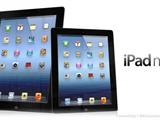Apple's Free Promotion: Whose Face Got Slapped?
iLife — Free, iWork — Free, OS X Mavericks — Free. At 1:00 AM Beijing time on October 23rd, during Apple's new product launch at the Yerba Buena Center in San Francisco, CEO Tim Cook announced the free era of OS X with three "Free"s.
During this year’s final Apple event, apart from the two new iPad devices — Retina iPad mini and iPad Air — the most noteworthy aspect was the free offering of OS X Mavericks. From an initial price of $129, to $29 for Snow Leopard, then $19 for Mountain Lion, and now Mavericks being free, Apple has finally realized that Mac OS X is akin to iOS, and Mac is akin to iPhone — they shouldn’t be split apart.
Apple has become the world's highest-valued company by market capitalization, but what makes it the most profitable? The iPhone! Apple profits immensely by combining excellent hardware with a great user experience through software integration on its iOS devices. Making OS X free is essentially Apple's attempt to replicate the iOS model.
There’s no such thing as a free lunch, and free is merely another business model beyond charging fees. Companies still aim to pursue profit as their ultimate goal, and Apple is no exception. By attracting more users and traffic through free offerings, it’s like a tourist attraction — more visitors come when there's no entrance fee than when there is one. The more visitors, the more goods sold within the attraction. The Apple App Store has already proven its value with cumulative downloads reaching 60 billion times, generating hundreds of billions of dollars in value, benefiting both Apple and developers economically. And who's to say the Mac App Store within OS X doesn't have the same potential? Apple aims to further tap into the potential of Macs.
Additionally, we need to understand one issue: Is OS X really free? Purchasing a Mac inherently includes the cost of OS X, so after OS X becomes free, have you noticed any reduction in the price of Macs? OS X being free refers to free upgrades; you still have to pay for your first purchase.
The impact of OS X being free is felt most strongly by none other than Microsoft. Windows and Office are the two most relied-upon weapons in Microsoft's entire software empire. Let's discuss how making OS X free affects Windows.
For most people, PC means Windows. Many ordinary people aren't even aware of the existence of OS X, Linux, or other desktop systems. For a long time to come, Windows will still dominate the desktop system market. OS X is merely one type of desktop system, acting as a disruptor. What truly poses a threat to Windows are products like Android and iOS that transcend the PC era.
As for iWork, it's like giving Microsoft a slap in the face. After years of development and evolution, while iWork may not fully replace Office, both iWork and Office have their own strengths and weaknesses. However, one point remains: iWork does not support Windows, and the vast enterprise platform on Windows is something iWork cannot reach.
Step by step, Apple is threatening Microsoft's market position. As of now, it won't significantly impact or harm Microsoft, but it will certainly accelerate Microsoft's transformation pace. This is one of the reasons why Microsoft acquired Nokia.
Software is not Apple's main profit point. In the short term, making OS X, iWork, and iLife free might result in some loss of profit for Apple, but in the long run, doing so reduces the entry cost for desktop systems and software and increases user loyalty to its products. It is an important step for Apple to expand its ecosystem.



